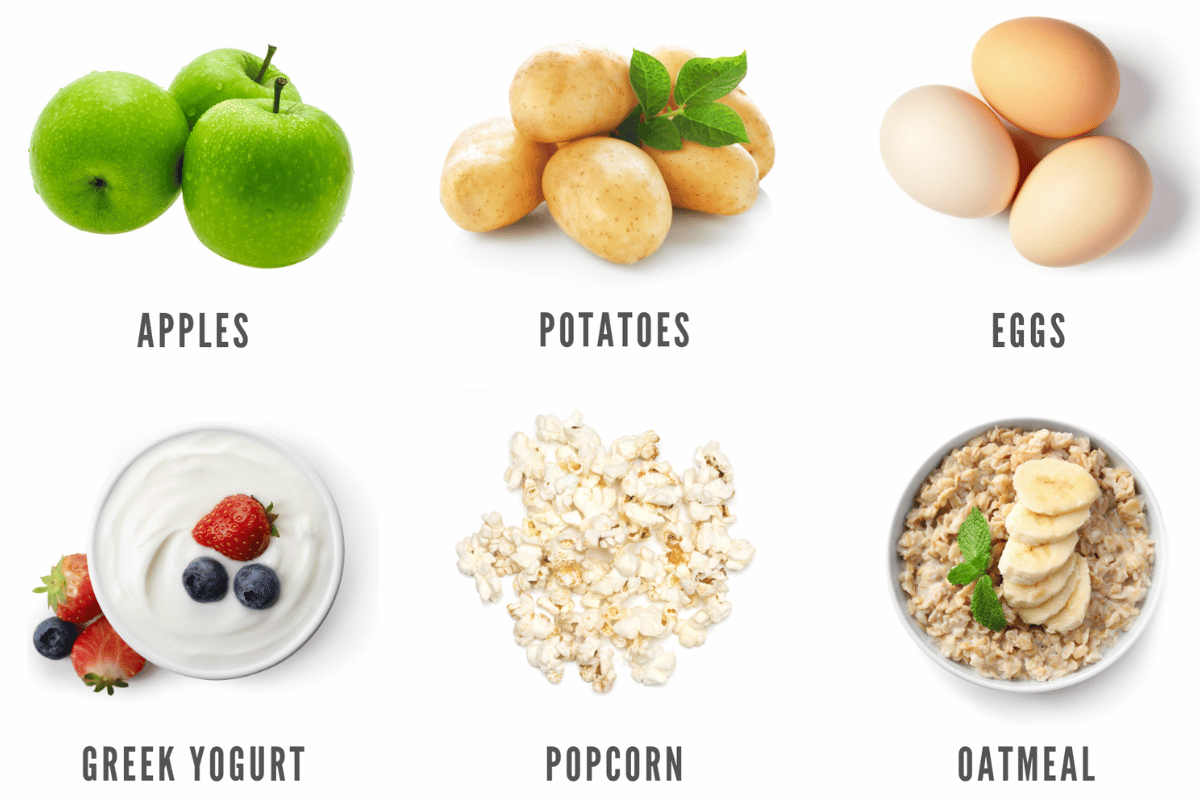As we delve into 2024, the focus on effective weight loss strategies continues to evolve, with a central question being, “What to eat to lose weight?” This article explores the latest trends and research in dietary habits that promote successful weight loss. We uncover the shift towards whole, nutrient-dense foods, and how incorporating these into your diet can significantly impact weight loss efforts. Understanding that it’s not just about eating less, but eating right, we highlight the importance of balancing macronutrients – proteins, fats, and carbohydrates – to optimize metabolism and satiety.
Moreover, we discuss the rise of personalized nutrition in 2024, which tailors diet plans to individual health needs and genetic profiles, revolutionizing traditional weight loss approaches. Alongside this, we explore the growing trend of mindful eating and its role in sustainable weight management. This guide will navigate you through the dos and don’ts of the latest dietary trends, helping you to make informed choices about what to eat to lose weight effectively in 2024. The article not only answers the pressing question of the right foods for weight loss but also provides a comprehensive view of holistic health and well-being in the context of modern nutritional science.

what to eat to lose weight
As we step into 2024, the landscape of weight loss strategies and diets continues to evolve, reflecting the latest scientific research and societal shifts. Central to this evolution is the question: “what to eat to lose weight” in the most effective and healthy way. This year, we are seeing a significant shift in focus from restrictive diets to more holistic and sustainable approaches to weight loss.
The significance of understanding what to eat to lose weight has never been more pronounced. With the overwhelming amount of information available, discerning the most effective and health-promoting dietary choices can be challenging. However, the trends in 2024 are moving towards a clearer and more refined understanding of nutrition. This includes a deeper comprehension of how specific foods and dietary patterns not only contribute to weight loss but also support overall health and well-being.
The current health landscape is shaped by a heightened awareness of the connection between diet and long-term health outcomes. As obesity and related health conditions continue to be a global concern, the focus is not just on losing weight but on doing so in a way that promotes long-term health and sustainability. This involves moving away from short-term fixes and fad diets to embracing dietary patterns that are balanced, nutrient-rich, and tailored to individual needs.
In this context, the upcoming sections of this article will delve into the specifics of the 2024 weight loss trends. We will explore the shift towards whole, unprocessed foods, the rise of personalized nutrition, the importance of macronutrient balancing, and the emerging trends of intermittent fasting, mindful eating, and the inclusion of superfoods in weight loss diets. Additionally, we will examine the role of technology in supporting these dietary changes.
As we navigate through these trends, our goal is to provide a comprehensive guide on what to eat to lose weight successfully in 2024, offering insights that are not only in line with the latest research but also practical and adaptable to everyday life. This guide aims to empower you with knowledge and tools to make informed decisions about your diet and health in the year ahead.
Whole Foods and Plant-Based Diets
The shift towards whole, unprocessed foods in weight loss diets marks a significant trend in 2024. Embracing a diet rich in whole foods is a key answer to the question, “what to eat to lose weight.” This approach focuses on consuming foods in their most natural state, or as minimally processed as possible, to maximize nutrient intake and promote healthy weight loss.
Whole foods, including fresh fruits and vegetables, whole grains, lean proteins, nuts, and seeds, are packed with essential nutrients. These foods are naturally lower in calories, higher in fiber, and more nutrient-dense compared to their processed counterparts. The high fiber content is particularly beneficial for weight loss, as it helps to keep you feeling fuller for longer, reducing the likelihood of overeating or snacking on unhealthy options.
Plant-based diets have also gained significant traction in 2024 as a method of weight loss and overall health improvement. This dietary pattern emphasizes foods derived from plants, including vegetables, grains, nuts, seeds, legumes, and fruits, with minimal or no animal products. The benefits of a plant-based diet for weight loss are manifold. These diets are typically lower in calories and fat, and higher in fiber and essential nutrients, contributing to better satiety, improved metabolism, and decreased calorie intake.
Moreover, plant-based diets have been linked to a lower risk of chronic diseases such as heart disease, diabetes, and certain cancers. By reducing the intake of saturated fats and cholesterol found in animal products, and increasing the consumption of a variety of plant-based foods, individuals can achieve a healthier weight and improved overall health.
In conclusion, the trend towards whole foods and plant-based diets in 2024 offers a sustainable and healthful answer to “what to eat to lose weight.” By focusing on these nutrient-rich food options, individuals can enjoy a diverse, satisfying, and beneficial diet that supports both weight loss and long-term health.
The Rise of Personalized Nutrition
In 2024, the trend of personalized nutrition has become a game-changer in answering the perennial question: “what to eat to lose weight.” This approach tailors dietary recommendations to individual genetic profiles, health needs, and lifestyle factors, providing a more effective and bespoke route to weight loss.
The concept of personalized nutrition stems from the understanding that the one-size-fits-all approach to dieting is often ineffective. Genetic variations can affect how individuals metabolize certain foods and nutrients, influencing their weight loss journey. For instance, some people may process carbohydrates more efficiently, while others may have a higher tendency to store them as fat. Personalized nutrition takes these genetic factors into account to recommend a diet that optimizes weight loss and overall health.

what to eat to lose weight
Additionally, personalized diets consider other factors like age, gender, activity level, and existing health conditions. By analyzing these elements, nutritionists can create tailored eating plans that not only promote weight loss but also improve other health metrics like blood sugar levels, cholesterol, and blood pressure.
The rise of technology has played a significant role in making personalized nutrition more accessible. Advances in genetic testing and data analysis allow for detailed insights into individual health and nutritional needs. Mobile apps and online platforms offer personalized meal planning and tracking, making it easier for individuals to adhere to their customized diets.
This trend of personalized nutrition is revolutionizing the way we approach the question of “what to eat to lose weight.” By moving away from generic dietary advice to more individualized recommendations, 2024 is witnessing a more nuanced and scientifically informed approach to weight loss and nutrition. This personalized touch not only enhances the effectiveness of diet plans but also aligns with the growing desire for a more tailored healthcare and wellness experience.
Macro Balancing for Weight Loss
In 2024, understanding and balancing macronutrients – proteins, fats, and carbohydrates – has become a cornerstone in addressing the question of “what to eat to lose weight.” This approach goes beyond mere calorie counting, focusing instead on the types of calories consumed and their impact on weight loss and overall health.
Proteins are essential for building and repairing tissues and can play a significant role in weight loss. They are known for their satiety-inducing properties, helping to reduce hunger and overall calorie intake. Including a good source of protein in every meal can aid in preserving muscle mass during weight loss, which is crucial as muscle burns more calories than fat.
Fats, particularly healthy fats such as those found in avocados, nuts, seeds, and olive oil, are also an important part of a weight loss diet. While fats are calorie-dense, they are necessary for nutrient absorption and overall health. They also contribute to fullness, which can help prevent overeating. The key is to focus on unsaturated fats and avoid trans and saturated fats commonly found in processed foods.
Carbohydrates have often been misunderstood in the context of weight loss. However, the right kind of carbohydrates, especially complex carbs like whole grains, legumes, and vegetables, are vital for energy and overall health. They are packed with nutrients and fiber, aiding in digestion and promoting satiety. The goal is to choose carbs that are high in fiber and low in added sugars.
Balancing these macronutrients is crucial for creating a well-rounded diet that supports weight loss. It’s not just about reducing a particular macronutrient group but understanding how to incorporate each in the right proportions. This balance can vary from person to person, depending on individual metabolic health, physical activity, and personal preferences.
In summary, macro balancing in 2024 emphasizes the quality of macronutrients in the diet. By understanding and adjusting the intake of proteins, fats, and carbohydrates, individuals seeking to answer the question of “what to eat to lose weight” can achieve their goals more effectively and sustainably.
Intermittent Fasting and its Popularity
In 2024, intermittent fasting has emerged as a popular and effective approach to weight management, offering a unique answer to the question of “what to eat to lose weight.” This trend isn’t just about the foods you eat but also when you eat them, providing a structured eating pattern that can significantly impact weight loss and overall health.
Intermittent fasting involves alternating periods of eating with periods of fasting. This method is not focused on restricting specific foods or food groups but rather on setting time windows for eating and fasting. The most popular methods include the 16/8 method, where you fast for 16 hours and eat within an 8-hour window, and the 5:2 method, where you eat normally for five days of the week and restrict calorie intake for the other two days.
One of the key benefits of intermittent fasting is its ability to facilitate a calorie deficit, which is essential for weight loss, without the need for meticulous calorie counting. By limiting the time period during which food can be consumed, many people naturally reduce their overall calorie intake. Additionally, intermittent fasting can lead to hormonal changes that may boost metabolic rate and increase fat burning.
Another significant aspect of intermittent fasting is its impact on insulin sensitivity. By regulating eating patterns, intermittent fasting can improve the body’s response to insulin, which is particularly beneficial for those managing conditions like type 2 diabetes or metabolic syndrome.
Despite its popularity, intermittent fasting may not be suitable for everyone. It’s important to consider individual health conditions, lifestyle, and dietary needs before adopting this method. Consulting with a healthcare professional can provide insights into whether intermittent fasting is a viable option for your weight loss journey.
In conclusion, intermittent fasting in 2024 stands out as a notable trend in the quest to determine “what to eat to lose weight.” Its flexibility, simplicity, and the potential for significant health benefits make it a viable option for many looking to lose weight effectively and sustainably.

what to eat to lose weight
Mindful Eating and Weight Loss
The concept of mindful eating has become a significant part of the weight loss conversation in 2024, offering a thoughtful approach to the question of “what to eat to lose weight.” Mindful eating is about developing a deeper connection with food by paying full attention to the eating experience. This method encourages awareness of physical hunger and satiety cues, leading to a more intuitive and satisfying relationship with food.
At its core, mindful eating involves being fully present during meals, eating slowly, and savoring each bite. This practice helps in recognizing the body’s signals of fullness, reducing the likelihood of overeating. By focusing on the sensory experience of eating, individuals can find greater enjoyment in their meals, even when eating less.
Another aspect of mindful eating is the acknowledgment and management of emotional eating. Many individuals eat in response to emotions like stress, boredom, or sadness, rather than physical hunger. Mindful eating helps in identifying these patterns and finding healthier ways to cope with emotions.
Incorporating mindful eating into daily life can start with simple steps, like eating without distractions (like TV or smartphones), chewing food thoroughly, and pausing to assess hunger and fullness levels throughout a meal. These practices encourage a healthier attitude towards food and can lead to more sustainable eating habits.
Mindful eating also emphasizes the quality of food choices. It promotes a balanced approach to nutrition, where the focus is on consuming nourishing and satisfying foods rather than restrictive dieting. This approach aligns with the body’s natural needs and can lead to more effective weight management.
In summary, mindful eating in 2024 offers a holistic approach to weight loss. It moves beyond the basic question of “what to eat to lose weight” to how and why we eat. By fostering a mindful relationship with food, individuals can achieve a healthier weight and a more positive eating experience.
Superfoods and Weight Loss
The trend of incorporating superfoods into diets for weight loss is gaining momentum in 2024. Superfoods, known for their high nutrient density and health benefits, offer a compelling answer to the question, “what to eat to lose weight.” These foods are not only beneficial for shedding pounds but also for enhancing overall health and well-being.
Superfoods include a diverse range of fruits, vegetables, grains, and proteins, each packed with vitamins, minerals, antioxidants, and other health-promoting compounds. Some of the notable superfoods making waves in 2024 include berries (like blueberries and acai berries), leafy greens (such as kale and spinach), nuts and seeds (like chia seeds and almonds), and fatty fish rich in omega-3 fatty acids (such as salmon and mackerel).
One of the key benefits of superfoods in weight loss is their ability to provide maximum nutrition with fewer calories. This means you can consume a nutrient-rich diet without excessive calorie intake. Foods high in fiber and protein, common in many superfoods, are particularly effective for weight loss as they promote satiety and help in managing hunger.
Another advantage of superfoods is their impact on metabolism and health. Many of these foods contain compounds that can boost metabolic rate, enhance fat burning, and reduce inflammation. For instance, green tea, another popular superfood, is renowned for its metabolism-boosting catechins.

what to eat to lose weight
Incorporating superfoods into your diet can be simple and enjoyable. Adding berries to your breakfast, including a portion of leafy greens in your meals, snacking on nuts and seeds, or choosing fatty fish as your protein source are all easy ways to include these nutritional powerhouses in your daily diet.
In conclusion, superfoods offer a nutritious and effective pathway towards achieving weight loss goals in 2024. By focusing on these nutrient-dense foods, individuals seeking answers to “what to eat to lose weight” can find a balanced and healthful approach to dieting that goes beyond traditional weight loss methods.
Technology and Diet Tracking
In 2024, the integration of technology in diet and nutrition has become a pivotal tool for those seeking answers to “what to eat to lose weight.” Technological advancements have significantly enhanced the ability to track dietary habits, monitor nutritional intake, and personalize diet plans, making weight loss journeys more manageable and effective.
The use of smartphone apps for diet tracking has seen a considerable rise. These apps offer features like calorie counters, nutrient breakdowns, meal planning, and progress tracking. Users can easily log their food intake, including details about portion sizes and ingredients, to receive immediate feedback on their caloric and nutritional consumption. This real-time data helps in making informed dietary choices and adjustments, crucial for effective weight loss.
Wearable technology, such as fitness trackers and smartwatches, has also played a significant role in weight management. These devices track physical activity, calories burned, and even sleep patterns, all of which are important factors in weight loss. By syncing with diet tracking apps, these wearables provide a holistic view of an individual’s health, offering insights into how lifestyle choices affect dietary needs.
Another technological advancement in diet tracking is the use of Artificial Intelligence (AI) and machine learning. These technologies are being employed to analyze dietary habits, recommend personalized meal plans, and even predict future dietary needs based on past patterns and health goals. AI-driven virtual nutritionists and diet coaches are becoming increasingly popular, providing tailored guidance and support.
In addition to tracking and analysis, technology has facilitated access to a wealth of nutritional information and expert advice. Online platforms, forums, and social media groups offer communities where individuals can share experiences, recipes, and tips, further supporting their weight loss journeys.
In summary, technology has become an indispensable ally in answering the question of “what to eat to lose weight” in 2024. The ability to track, analyze, and personalize dietary habits through advanced tools and platforms empowers individuals to make smarter food choices and effectively manage their weight loss goals.
Conclusion: Combining Trends for Optimal Weight Loss
As we conclude our exploration of 2024’s weight loss trends, it’s evident that finding the answer to “what to eat to lose weight” involves a multifaceted approach. This year’s trends highlight the importance of personalized nutrition, balanced macronutrient intake, and the incorporation of superfoods, alongside mindful eating practices and the strategic use of technology.
Combining these trends can lead to a more effective and sustainable weight loss journey. Personalized nutrition ensures that dietary choices are tailored to individual health needs and goals. Balancing macronutrients – proteins, fats, and carbohydrates – in the diet supports metabolism and satiety, crucial for long-term weight management. Superfoods add a nutrient-rich component to the diet, enhancing overall health while aiding in weight loss.

what to eat to lose weight
Mindful eating brings a psychological dimension to weight loss, promoting a healthier relationship with food. It encourages awareness of hunger and fullness cues, helping to prevent overeating. Finally, technology plays a key role in monitoring dietary habits and providing personalized feedback, making it easier to stay on track with weight loss goals.
In 2024, successful weight loss is not just about restricting calories but about making informed, healthful, and enjoyable dietary choices. It’s about understanding and respecting your body’s needs and embracing a lifestyle that promotes overall well-being. As we look to the future, these trends in nutrition and technology are set to continue evolving, offering new insights and opportunities for those seeking to lose weight successfully.
Remember, the journey to “what to eat to lose weight” is as much about the destination as it is about the journey itself. It’s a continuous process of learning, adapting, and growing towards a healthier, happier you.
FAQs: Navigating 2024’s Weight Loss Trends
Q1: What are the best foods to eat for weight loss in 2024?
A1: In 2024, the best foods for weight loss are whole, unprocessed foods like fruits, vegetables, lean proteins, whole grains, and healthy fats. Including superfoods such as berries, leafy greens, and nuts can also enhance your diet’s nutrient density and aid in weight loss.
Q2: How does personalized nutrition help with weight loss?
A2: Personalized nutrition tailors your diet to your individual health needs, genetic profile, and lifestyle. It optimizes your food choices for weight loss, ensuring that your diet plan is effective, sustainable, and aligned with your body’s unique requirements.
Q3: Can I lose weight without counting calories?
A3: Yes, focusing on the quality of food, mindful eating, and balanced macronutrient intake can lead to weight loss without the need to count every calorie. It’s more about understanding what and how you eat.
Q4: Are plant-based diets effective for weight loss?
A4: Plant-based diets can be very effective for weight loss as they are generally lower in calories and higher in fiber compared to diets high in animal products. They also offer numerous health benefits, including improved heart health and reduced risk of certain diseases.
Q5: What role does technology play in weight loss?
A5: Technology, such as diet tracking apps and wearable fitness devices, plays a significant role in weight loss by helping you monitor your food intake, physical activity, and overall progress. It provides valuable insights and convenience in managing your diet.
Q6: Is intermittent fasting a safe weight loss method?
A6: Intermittent fasting can be a safe and effective method for weight loss for most people. However, it’s important to ensure it aligns with your individual health needs and lifestyle. Consulting a healthcare professional before starting is recommended.
Q7: How does mindful eating contribute to weight loss?
A7: Mindful eating helps in weight loss by promoting greater awareness of hunger and fullness cues, reducing overeating, and enhancing the enjoyment of food. It encourages a healthier relationship with food and eating habits.
Q8: What are the challenges of following weight loss trends?
A8: Challenges can include ensuring that the trend is suitable for your individual health needs, maintaining motivation, and integrating new eating patterns into your lifestyle. It’s important to choose trends that are sustainable and backed by scientific evidence.
what to eat to lose weight